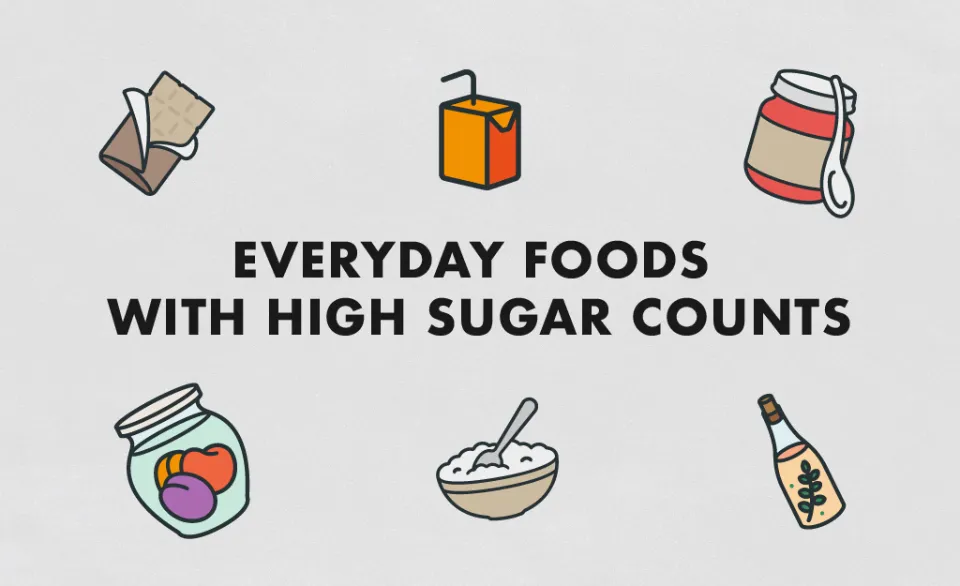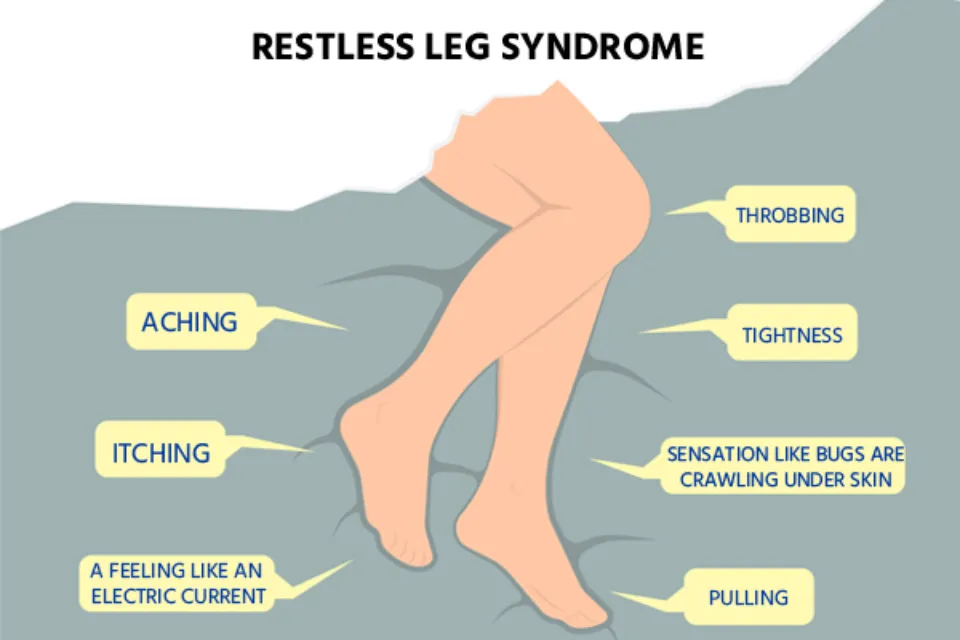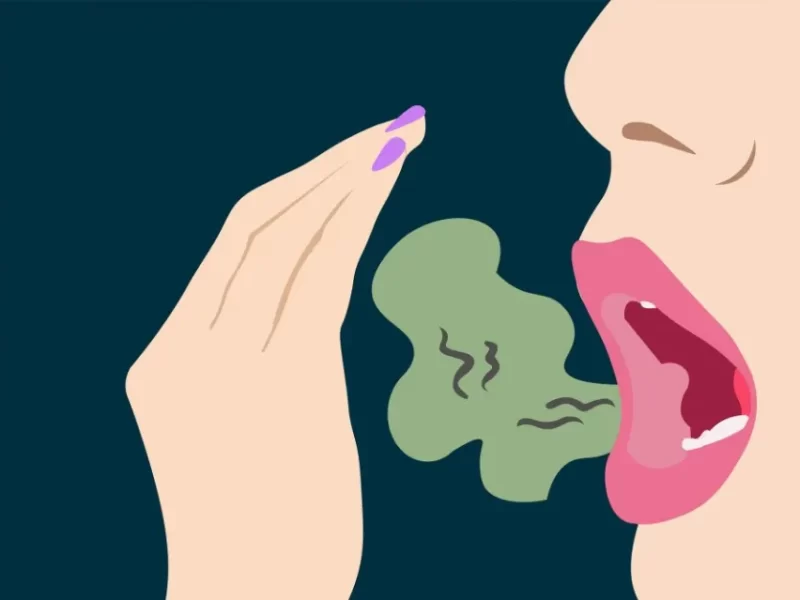RLS, or restless leg syndrome, which is another name for Willis-Ekbom disease, is characterized by discomfort in the lower legs and an intense urge to move or stretch. The condition typically results in symptoms that start in the evening and get worse as the night goes on. Unfortunately, this means that people with RLS frequently struggle to fall asleep because of discomfort and constant movement.
Read on to find out what foods can make symptoms of restless leg syndrome worse and what foods you should avoid.
Read more: How to Strengthen Weak Legs in the Elderly: Have a Try! – Elder VIP
What is Restless Leg Syndrome?
You may experience uncomfortable leg sensations and a strong urge to move your legs if you have restless leg syndrome (RLS), also known as Willis-Ekbom disease. It frequently happens at night, especially when you’re trying to fall asleep. Your condition might be caused by, or made worse by, a deficiency in a particular nutrient in your diet.
One of the main ways restless legs syndrome is identified is by an intense urge to move your legs.
However, you may also have:
- Sensations in your legs that are only present when you are at rest
- Relief when you move or stretch your legs
- Symptoms that get worse in the evening or at night
- Uncontrollable twitching or kicking
Symptoms of restless legs typically affect your feet or legs. Rarely, they may also harm your arms. Your body’s two sides typically experience the symptoms in equal measure.

Many people describe restless legs syndrome feelings as:
- Aching
- Crawling
- Creeping
- Electric
- Itching
- Pulling
- Throbbing
Instead of the skin’s surface, the sensations usually affect the actual tissue in your legs. It’s possible that your symptoms will get worse and get better at different times. Your symptoms may improve or worsen depending on your diet.
Which Foods Should You Avoid?
Foods that can aggravate RLS and worsen symptoms are others that you should avoid if you have the condition. The top three foods to avoid are chocolate, sugary sodas, and fried foods.
Caffeine can stimulate your nerves and worsen your symptoms, so you should also avoid any foods or beverages that contain it.
These include chocolate, coffee, tea, and energy drinks. Processed foods and beverages, such as soda, that are fattening or have an excessive amount of sugar in them should also be avoided. According to some evidence, overweight people are more likely to develop RLS as well as a number of other health issues. As a result, it’s crucial to consume less fat and sugar while also eating a more wholesome, balanced diet.
Caffeine-containing foods and drinks may stimulate your nervous system and make RLS worse. This includes:
- Coffee
- Tea
- Energy drinks
- Chocolate
You should also limit or avoid fattening items, such as:
- Soda
- Fried foods
- Processed foods
- Foods high in sugar
A 2009 study showed people who are obese have an increased risk of This could be a result of the association between obesity and increased risk of diabetes, heart disease, and a decrease in dopamine receptors. RLS could develop as a result of any of these conditions.
Some claim that staying away from gluten helps RLS. Wheat, barley, and rye are all sources of protein known as gluten. It can be found in a variety of foods, including bread and baked goods, as well as some condiments, soups, and salad dressings.
There is no proof in the scientific community that gluten causes RLS. If you suspect gluten may be the cause of your symptoms, you might think about going gluten-free for a few weeks to see if they get better.

What Foods Should You Eat?
| Iron | Folate | Magnesium |
| Red meat Liver Spinach and leafy greens Dried fruit Poultry Pork Seafood Iron-fortified cereals Beans | Liver Spinach and leafy greens Fortified cereals Black-eyed peas Lentils and beans Rice and quinoa Asparagus Whole wheat pasta Brussels sprouts Avocado | Almonds Spinach Cashews Peanuts Soy milk Black beans Edamame Peanut butter Whole wheat bread Brown rice |
Other Tips for Restless Leg Syndrome
Other Health Conditions
Studies on restless legs syndrome show that people who have this condition are also more likely to:
- Be obese
- Experience depression
- Have diabetes
- Have cardiovascular disease
You may also lessen the symptoms of restless legs syndrome by treating or avoiding these conditions.
Sleep Habits
A healthy bedtime routine can also help you sleep better at night.
Tips for this include:
- Maintain a cool, dark space.
- In addition to turning off your phone and TV, turn off all artificial lighting.
- Set a regular time for going to bed.
- In the hours before going to bed, give up caffeine, nicotine, and alcohol.
- Participate in some sort of physical activity every day, such as walking or playing a sport.
- Do not eat a late dinner that is too close to your bedtime.
What You Can Do Now?
Maintaining a healthy diet and following common sense diet dos and don’ts will help you have the best chance of beating RLS. For example:
- Eat a variety of fresh produce, especially dark leafy greens.
- Eating a variety of iron-rich lean meats is advisable (unless you are a vegetarian).
- Consume legumes, seeds, and tree nuts.
- Consume fewer processed foods overall.
- Avoid consuming foods and drinks that are loaded with sugar or high-fructose corn syrup.
- Avoid fried foods and other foods that make you gain weight.
A change in diet and way of life can frequently help RLS symptoms. It may take some time for some changes to take effect, though your results will vary depending on the cause of your RLS. Consider discussing the risks and benefits of prescription drug treatments with your doctor if, after a few weeks, your RSL has not improved or has gotten worse.
Conclusion
While a diet-only approach to treating RLS may not always be effective, consuming a diet high in iron, folate, and magnesium while reducing the intake of fat, sugar, and caffeine can help to lessen the severity of RLS symptoms. In some cases, this may be sufficient to completely eliminate the symptoms, whereas in others, additional treatments, like medication, may be used to lessen symptoms.



